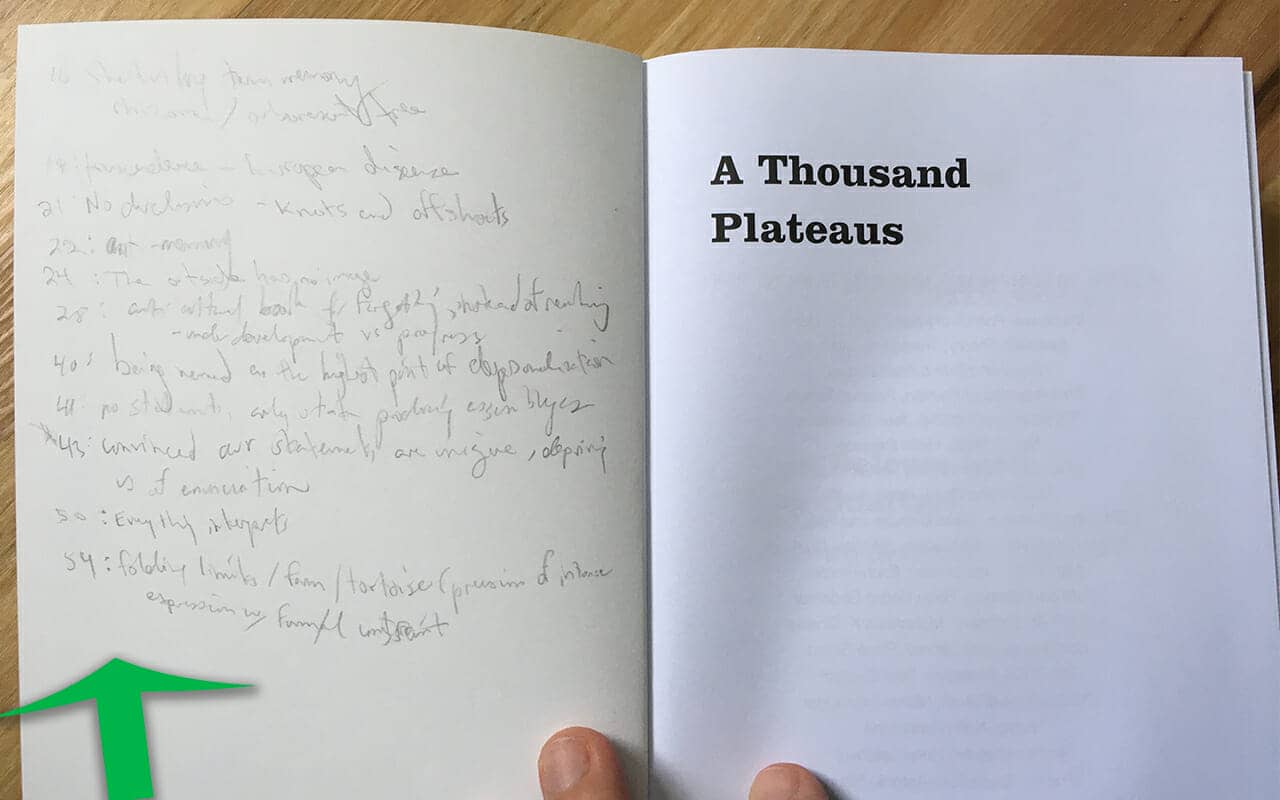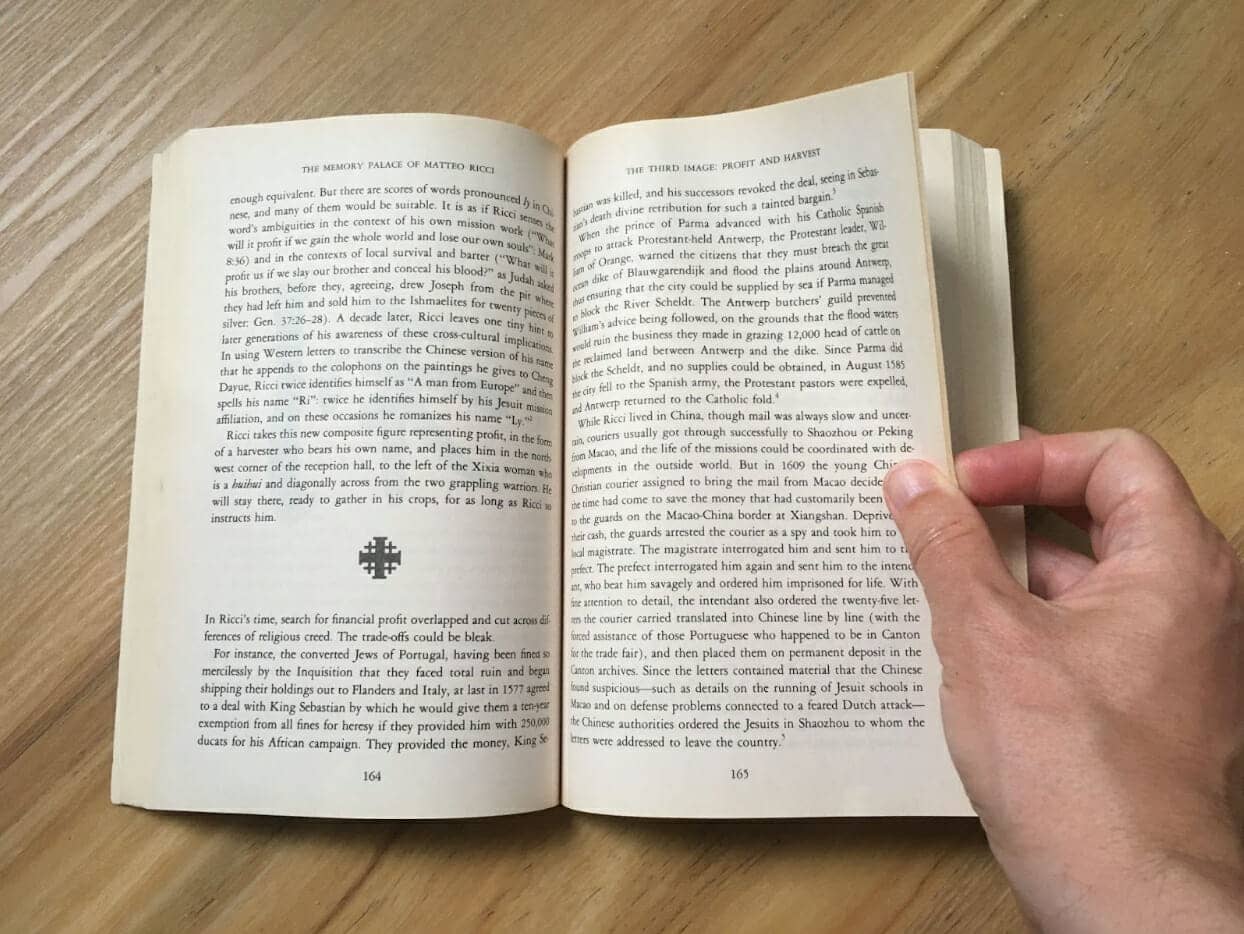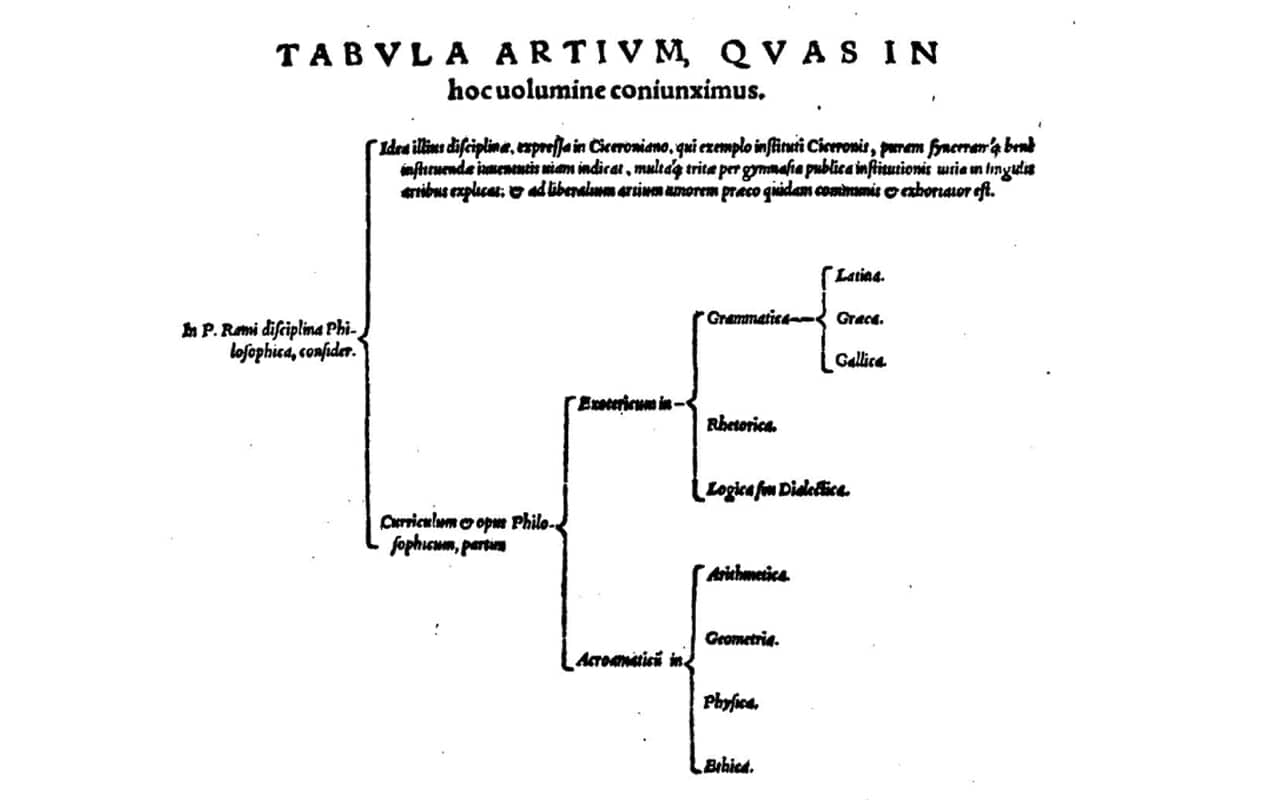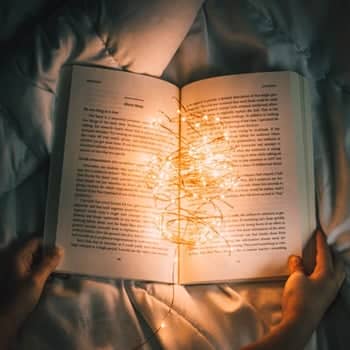Podcast: Download
Subscribe: Apple Podcasts | RSS
 If you want to know how to not fall asleep while reading, here’s what you don’t need:
If you want to know how to not fall asleep while reading, here’s what you don’t need:
You don’t need another post telling you not to read in bed.
The fact of the matter is that I read in bed often. I love it and have some strategies to share that will allow you to do the same.
Without feeling guilty about it.
That said, reading in bed is not always an ideal strategy.
In reality, any time you rely on just one strategy, reading and understanding will always evade you.
To stop feeling sleepy while reading, you need to combine a small number of reading techniques.
These techniques are easy to learn and match with the specific type of reading you’re doing.
I learned to combine strategies over eleven years as a university student and ten years as a professor.
As an independent researcher I continue to read massive amounts of material to this day.
And sleepiness simply isn’t an issue.
So if you’re ready for my best reading and comprehension tactics that literally push sleepiness away on autopilot, let’s dive in.
“Why Does Reading Make Me Sleepy?” – The Surprising Answer
A lot of people think there’s something wrong with them when they fall asleep while reading.
Nothing could be further from the truth.
Let me spell this out loud and clear:
Reading is not natural.
It is a learned skill based on artificial technologies of alphabets and books created by humans.
This simple fact means…
No one is born with a brain adapted to reading books. Not only that, but what we call a “book” is not a fixed thing. It’s always changing and you can see that change in this brief history of books.
Moreover, the human eye is optimized for scanning environments and faces, not words on paper or screens. This is why we can hang out at the beach all day without eye strain, but quickly get tired while reading on the beach.
Other Reasons You Get Sleepy While Reading
Of course, there are other reasons you might get sleepy while reading. You could be:
- Hungover
- Lacking focused goals
- Suffering the effects of poor diet and low fitness
- Struggling with an illness, stress or pain
- Overworking while reading due to poor vocabulary (which is easy to increase)
Or it could be a mixture of these factors. I remember when I was in university I suffered depression, poor diet, chronic pain and poor fitness at the same time.
Not only would I fall into hibernations that lasted entire days during this time, but I could barely bring the pages I was looking at into visual focus. It was only until I started applying the tactics you’re about to discover that I started to see improvement.
One of the first things I needed to do, however, was to categorize the different types of reading I was doing.
Types of Reading And Their Demands
We read for many reasons:
- To pass exams
- Personal learning project
- Professional research
- Liesure
All of them can be pleasurable, and sometimes we read strictly for pleasure.
But as Beatrice Mikulecky points out in her books Reading Power and More Reading Power, your eyes can still get tired when reading for fun.
Her answer?
Practice reading more. The more you read, the stronger your eyes will get. And the stronger they are, the less easily they’ll grow tired.
Likewise, you can train your skills by practicing:
- Skimming and scanning
- Non-pseudoscientific subvocalization tactics
- Legitimate techniques for reading faster
In sum, reading is a set of trained activities and we need to do it in different ways depending on the kind of book and the exact goal of our reading.
So if you keep asking, “Why do I fall asleep while reading?” you can put the mystery to rest. Reading tires your eyes out no matter how much practice you get. All the more so if you have some of the issues we just discussed.
But even if you have some of those issues (I still have chronic pain, for example), there are strategies that can keep you awake. So let me start sharing them with you now.
How to NOT Fall Asleep While Reading (And Also Actually Remember What You Read)
As we go through these strategies, there’s no particular order of importance.
Each and every one is useful, and it’s up to you to explore them.
Also, always consider context. Sometimes it’s cool to use reading to help you fall asleep, for example. But generally, we want to keep Mikulecky’s larger point in mind:
Reading, even reading for pleasure, is a trained skill.
The sooner you start training yourself, the sooner you’ll find ways to keep yourself awake while reading in a way that creates excitement and energy.
These tips have helped me for a very long time and I hope they help you too.
One: Don’t Read. Hunt.
As I mentioned, we are born with brains evolved to track the environment and scan faces.
So why don’t we apply those natural and inherent abilities to our reading?
Have a look at this image:
All of those books belong to a specific category.
I “hunted” for them and took them from the shelf. Not a bunch of random books, but content specific books. Then, just as if I was scanning for the most nourishing food, I plowed through these books intentionally with the mental attitude of a hunter.
This involves adopting a particular posture. Have a look at this image:
Notice how I keep my pile of books to the side, but am sitting up and looking down at just one book.
There’s really no way to fall asleep while sitting like this.
And the hunter attitude really matters. Some of the science on adapting a mental image like this has been provided by Nir Eyal, who joined us on this episode of the Magnetic Memory Method Podcast.
Two: Remove Energy Draining Distractions
Speaking of Nir Eyal, his book is called Indistractable. It’s great, but one thing it doesn’t talk about his how draining noise and light can be.
If you want to keep your eyes sharp and fresh for reading, it sounds weird, but reducing noise can help.
Not just while you’re reading, but throughout the day.
So if you know that you have a bunch of heavy reading to do during the evening, consider wearing earplugs throughout the day if you can.
I share more powerful tips related to great study locations and give you my absolute best tip for ear plugs.
Focus also on how you can reducing other distractions. For example, I used to have quite a few dramatic relationships.
Choosing your friends and romantic partners wisely can do a lot to make sure you have the energy you need while reading.
There’s also something called misophonia, which scientists have shown can create a wide range of energy-draining emotions.
Without education on these matters, you could wind up always being tired while reading. But now you have a massive clue that will help you reduce the issue.
Three: The Pinch Technique
If you’re a serious learner like I am, you need to get through some heavy and daunting books.
That’s why one of my favorite focus strategies for reading is the Pinch Technique.
It’s simple.
Instead of feeling overwhelmed by so much reading, I chunk it down by physically feeling how many pages I have left to go in a particular chapter.
This works when reading in bed or anywhere.
I know it seems silly, but it helps me tremendously, especially when I cannot avoid reading while tired.
Four: Be Patient with Boring Books
What makes a book boring anyway?
Usually it’s one of or a combination of a few things:
- It’s badly written
- You don’t have the background prerequisites to follow the book’s message or theoretical basis
- You may have vocabulary issues, which I also come across sometimes (and that’s why I’m always improving my vocabulary)
In addition to vocabulary at the level of individual words, there’s also what you might call “terminological vocabulary” or nomenclature. You might also come across challenging charts and diagrams like this:
For example, one of my big learning projects right now as I prepare to write another installment in my Memory Detective series of novels is learning all about linguistics and constructed languages.
I keep coming across terms like functional load, syllable weight, and experiential liminality. Yikes!
I know what each of the words in those phrases means, but I don’t know yet much about what the phrases themselves mean.
But learning them and committing them to memory is like investing in future energy. Through pattern recognition while reading, I feel awake and alive when I see them in the future.
I believe you will too, and it really just takes a bit of patience with boring books. And a bit of patience with yourself too.
Five: Read Aloud
I was required to read James Joyce’s Ulysses for my first field exam in 2004. It’s one of the biggest and most boring books I’ve ever read.
It was a dark Canadian winter, my clinical depression was heavy to the point I was worried I would not survive, and I was not in good health at all.
But I was devoted to passing this first important exam in my PhD, something that was just not going to be possible without knowledge of that book and many others related to Modernism.
So to help my tired mind and body, I listened to Ulysses on cassette with the book in my hands. There was no other way because back then, YouTube wasn’t even a thing, let alone the treasure trove of audiobooks we have online now.
There were many other books where I could not find even on cassette. So I read them aloud myself and often used a micro-cassette recorder so I could listen back to key passages, especially the tricky ones.
I read tricky passages aloud to this day. It not only helps with concentration and comprehension, but it’s a sure-fire way to keep myself awake. I’m confident it will work for you too.
Six: Multisensory Visualization
Nothing keeps you more engaged and awake than comprehending through multisensory visualization.
The process is easy and you can do it while in bed:
Instead of passively reading, you actively put the words into motion.
Typically, this is done by assigning mnemonic images. It’s one of the memory techniques used by our ancestors and I’m sure it helped them keep alert while reading too.
The trick is to make sure that the associations you are using are truly multisensory, which is why I recommend the exercises in the Magnetic Memory Method Masterclass.
Does this tactic require a bit of setup and practice?
Sure, but I’ve seen many people pick up the skills in a weekend or less, and you can check out their stories for yourself.
Seven: Ask Questions
Constant questioning can certainly feel tiring, but it can also generate more energy and enthusiasm when asking philosophical questions.
Do your questions have to be philosophical as you read?
No, but I do recommend that you question just about everything. Not only will this process of questioning help keep you away.
It will also help you understand a lot more of what is going on.
Some standard questions I use include:
- What else does this point connect to?
- Who else says something like this?
- If this point is correct, who benefits?
- What is the author missing here?
- Why is this point valid?
- What could make this point stronger?
The more you question, the more unique and interesting questions will arise.
Eight: Sleep Without Guilt
Sometimes we should stop trying to figure how to not fall asleep while reading.
Depending on your age, you will likely remember a lot more if you get plenty of sleep after reading.
As scientists have shown, sleep helps you consolidate memories. This means that reading a bit and taking a nap can be beneficial, not just for reading, but also implicit and explicit memory functioning overall.
And it bears noting that when you’re well-rested, you’re much less likely to fall asleep.
Nine: Build a “Magnetic Index” While Reading
Many “speed reading” courses (like this one) talk about using a pointer.
Personally, I don’t and would rather train my eyes to follow a line without a pencil getting between my eyes and the page.
However, there are some key ways I use a pencil while reading.
One of them is to take quick notes. I use this technique a lot while reading in bed, where I do not keep notes using devices or even my beloved journals.
The technique also helps me stay awake, and it’s part of the “hunting” mindset we discussed before.

I call my approach the “Magnetic Index” technique. It’s a clean and efficient way to keep engaged while also avoiding marking up beautiful books with all kinds of underlining and highlighting.
All you do is put the page number and some keywords related to the key ideas. Later, you can find them. This fast process helps with recalling all of the key details from any book. And it will help you brain make connections that bring up even more details you haven’t made note of.
This technique supplements but does not replace the advanced flashcard technique I share in How to Memorize a Textbook.
Ten: Abandon Boring Books with Caution
People like Scott Young talk about abandoning books early and often.
Although I don’t disagree outright, I think it’s horrible advice in a lot of contexts.
I don’t know what kind of reader you want to be, but I want to be as thorough and complete as possible.
I do skim through books and read them out of order, but overall, I push through big and challenging books precisely because I want to be the kind of person who enjoys foundational knowledge.
That way, it’s possible to see things no one else sees and make connections no one else makes.
The question is:
How can developing stick-to-it-ness help you keep awake while reading?
The answer is simple:
Use a Memory Palace.
This technique, when used fully and completely, helps you established webs of knowledge in your mind that increase your engagement. This happens because the more you know, the more you can know.
I realize this statement sounds abstract, but you’ll experience it soon enough. And it will help you determine with a greater degree of accuracy when it makes sense to abandon books and when it doesn’t.
If you’d like to learn this technique, please grab my FREE Memory Improvement Kit:
It will help you develop this skill.
And stronger memory will automatically translate to more alertness, focused attention and understanding that is free from memory biases that hold so many learners back.
Make no mistake, we all have cognitive biases, so to rid yourself of them, I’d suggest staying up late to learn all about them soon.
Stop Falling Asleep While Reading
As we’ve seen, the goal is a bit more nuanced than simply stopping the issue from happening.
In reality, you can read in bed, provided you set yourself up for success. I’ve got a PhD and two MAs and read in bed all the time.
I hope my tips have helped you discover not only how to keep alert while reading, but also to remember and understand more.
And I hope you now understand that feeling sleepy while reading isn’t your fault. It’s normal. And provided you structure your time and environment appropriately, it’s actually okay to fall asleep while reading.
Sleeping isn’t the issue. It’s timing, structure and a personal commitment to exploring better tactics over time.
So what do you say?
Are you ready to get out there and read with greater alertness?
Related Posts
- How to Read a Book and Remember Everything
Want to know how to read a book, and go beyond the standard advice? This…
- Why Speed Reading Is The Ultimate Enemy Of A Well-Read Mind
Is "speed-reading" really such an attractive idea? The short answer is ...
- The 3 Best Speed Reading Books That Actually Work
If you're looking for the best speed reading books, these 3 gems should not be…









